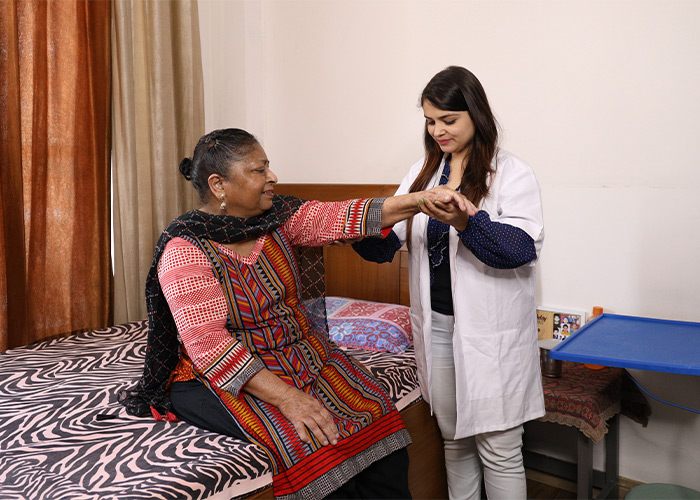The healthcare industry is evolving rapidly, and so are the opportunities for nurses. While hospital-based nursing has been a traditional choice for many, homecare nursing is becoming an increasingly popular and advantageous pathway for those looking to expand their careers internationally. Here’s why homecare nursing is a smart, strategic choice for anyone aspiring to become a global nurse.
1. Diverse Experience in Patient Care
Homecare nursing offers a wider range of patient interaction compared to hospitals. Nurses in homecare settings handle patients with varied needs, including elderly care, post-surgical recovery, chronic illness management, and palliative care. This broad range of experience helps nurses develop a versatile skill set that is highly valued in global healthcare systems.
In hospitals, nurses often work in specialized departments, which can limit their exposure to different types of care. Homecare, on the other hand, requires nurses to be adaptable and capable of managing multiple health scenarios, making them well-rounded professionals.
2. Holistic Patient-Centered Approach
One of the core values of global healthcare is providing patient-centered care. Homecare nurses focus on individual patients within their home environment, which fosters a deeper understanding of their personal, emotional, and social needs. This holistic approach helps nurses build strong relationships with patients, offering personalized care that enhances the patient experience.
As global healthcare systems shift towards more personalized and patient-focused care, nurses with homecare experience are better prepared to meet these evolving demands.
3. Increased Autonomy and Responsibility
In homecare settings, nurses often work independently, managing patients without the immediate supervision of doctors or senior staff. This level of autonomy encourages nurses to think critically, make informed decisions, and take responsibility for the patient’s care plan.
International healthcare employers highly value nurses who are confident decision-makers and capable of working independently. Homecare nurses develop these qualities early on in their careers, making them more attractive candidates for global opportunities.
4. Cultural Sensitivity and Communication Skills
Homecare nursing involves working closely with patients and their families in their homes, where nurses are exposed to diverse cultural, religious, and social backgrounds. This exposure helps nurses develop cultural sensitivity and enhances their ability to communicate effectively with people from different walks of life.
Cultural competence is a crucial skill for nurses looking to work internationally, where they may encounter patients from various cultural and ethnic backgrounds. Homecare nurses, having worked in diverse environments, are often better equipped to navigate these complexities.
5. Flexibility and Work-Life Balance
One of the significant benefits of homecare nursing is the flexibility it offers. Nurses often have more control over their schedules and can achieve a better work-life balance than in hospital settings, where shifts can be long and rigid.
This flexibility is not only beneficial for personal well-being but also allows nurses to pursue further studies, certifications, or language learning – all of which can be crucial steps in preparing for a global nursing career.
6. Opportunities for Specialization
Homecare allows nurses to specialize in specific fields like geriatric care, palliative care, or chronic disease management. These specializations are in high demand globally, and nurses with homecare expertise in these areas often find it easier to secure international roles.
In addition, specialized homecare experience can give nurses a competitive edge when applying for nursing positions abroad, particularly in countries where aging populations and chronic disease management are priority areas in healthcare.
7. Global Demand for Homecare Services
The demand for homecare services is growing worldwide due to aging populations, advancements in medical technology, and a shift towards outpatient care. Countries like Canada, the United States, and the United Kingdom are increasingly relying on homecare to manage the needs of their elderly and chronically ill populations.
Nurses with homecare experience are in high demand globally, as more countries recognize the value of home-based healthcare. By starting a career in homecare, nurses position themselves for international opportunities where their skills and expertise will be highly sought after.
8. Personal Growth and Fulfillment
Homecare nursing provides an incredibly rewarding experience. The close, personal connections formed with patients and their families lead to a sense of fulfillment that is often unmatched in hospital settings. Nurses in homecare witness firsthand how their care impacts the quality of life for their patients, which can be deeply motivating and inspiring.
This personal fulfillment translates into job satisfaction, a key factor that global employers consider when looking for dedicated, compassionate nurses to join their teams.
Conclusion:
Homecare as a Global Career Pathway
For nurses aspiring to work abroad, homecare provides the ideal foundation to build a global career. With its diverse patient interactions, holistic care approach, and opportunities for autonomy, homecare nursing equips professionals with the skills and experiences necessary to thrive in international healthcare settings.
As healthcare continues to move beyond the hospital walls, becoming a homecare nurse can open doors to new and exciting global opportunities.






Homecare nursing presents a unique opportunity for growth and adaptability, especially in areas like Krishnagiri. The diverse experiences in patient care allow nurses to cater to various needs, whether it’s elderly care or chronic illness management. This adaptability enhances the quality of home nursing services, ensuring that every patient receives personalized care tailored to their circumstances. As the demand for in-home nursing care rises, nurses in Krishnagiri can truly make a difference in their communities.
The holistic approach that homecare nurses adopt is commendable. In Kanyakumari, where healthcare systems are evolving, having a nurse in home care can significantly improve patient outcomes. The strong relationships built with patients foster trust and understanding, making care more effective. It’s crucial that we continue to support and promote the benefits of home medical services, allowing patients to receive the care they need in a familiar environment.
Working as an at home nurse offers incredible flexibility and the chance to pursue further education, particularly in places like Chengalpattu. Nurses can easily balance their work and studies, leading to better job satisfaction. Moreover, the growing demand for specialized care ensures that those who invest in developing their skills will find ample opportunities in this rewarding field. It’s a perfect blend of personal growth and professional fulfillment.
The emphasis on cultural sensitivity in homecare nursing is vital, especially in diverse areas such as Namakkal. As a care taker at home, understanding the cultural and emotional backgrounds of patients enriches the care provided. Nurses trained in this environment can adapt their approaches based on individual needs, making them highly sought after in global nursing markets. It’s inspiring to see homecare evolve in this direction!
The increasing global demand for homecare services is a clear indicator of where the future of nursing lies, particularly in Kanchipuram. Nurses with expertise in inhome nursing care are positioned perfectly to address the needs of an aging population. The ability to specialize in areas such as chronic disease management will not only enhance their skills but also open doors to exciting career opportunities. Investing in this pathway ensures that we have compassionate and capable professionals ready to provide the best care possible.